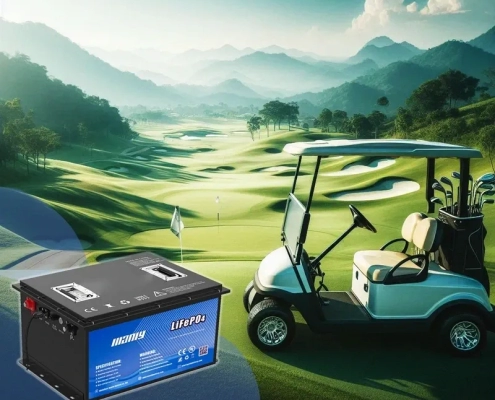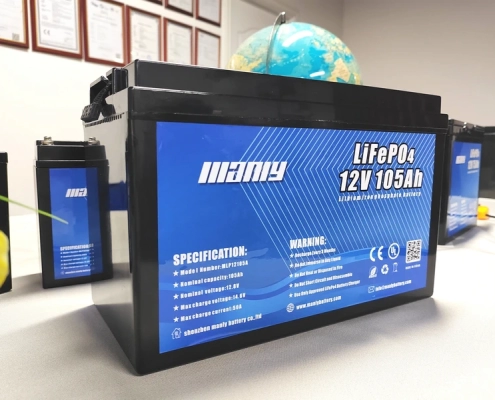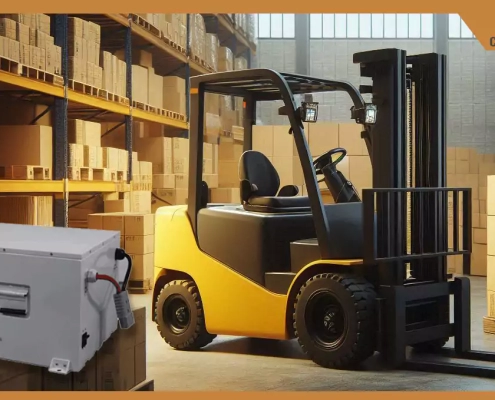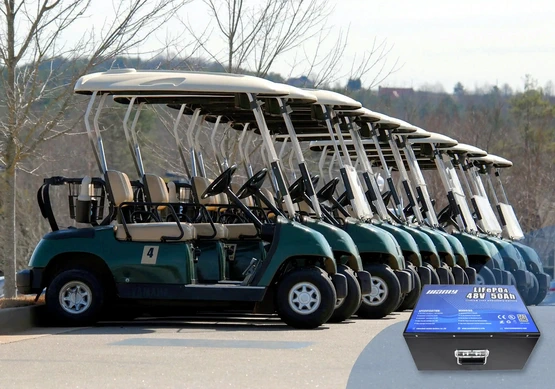2025 Comprehensive Guide to Lithium Ion Golf Cart Battery Conversion
Table of Contents
Lithium Ion Golf Cart Battery Conversion is a process that significantly enhances the performance and longevity of your golf cart. By upgrading from traditional lead acid batteries to lithium batteries, you can enjoy benefits such as longer battery life, consistent power output, and reduced maintenance. This guide will walk you through the necessary steps to successfully convert your golf cart to use lithium batteries, ensuring a smooth transition and optimal performance.
Benefits of Lithium Ion Golf Cart Battery Conversion
When to Replace Lead Acid Batteries
Switching from lead-acid to lithium ion golf cart battery conversion is a smart decision when your current golf cart batteries show signs of wear and reduced performance. If you notice any of the following issues, it might be time for an upgrade:
- Battery Damage: Lead acid golf cart batteries are prone to damage, which can significantly affect their performance. Look for signs like corroded terminals, warped lead plates inside the battery, cloudy liquid, or a deformed battery case. These are clear indicators that the golf cart battery is nearing the end of its life.
- Decreasing Capacity: If your golf cart doesn’t cover as much distance as it used to, even after a full charge, it indicates a loss in battery capacity. Faster-than-expected power depletion is another sign that your golf cart battery might need replacement.
- Maintenance Burden: Maintaining lead acid golf cart batteries can be quite cumbersome. They require regular watering and special handling to prevent leaks and spills. If you find this maintenance routine tedious, switching to lithium batteries for golf cart use could be beneficial, as they require virtually no upkeep.
- Visual Indicators: Physical signs such as corrosion on terminals, bulging cases, or leaking fluids are serious warnings. If you observe any of these, it’s time to consider a replacement.
Advantages of Using Lithium Ion Batteries
Upgrading to lithium ion golf cart batteries offers several significant benefits:
- Longer Lifespan: Lithium batteries generally last much longer than lead-acid batteries. While lead-acid batteries might last 2-5 years, lithium batteries can last 10-20 years. This longevity translates to fewer replacements and lower long-term costs.
- Consistent Power: Unlike lead-acid batteries, which provide strong power at the beginning and then weaken, lithium batteries deliver consistent power throughout their discharge cycle. This means your golf cart will perform better for longer periods.
- Maintenance-Free: Lithium batteries require no maintenance. You don’t need to water them or worry about terminal corrosion. This hassle-free nature makes them ideal for users looking for convenience.
- Weight Savings: Lithium batteries are much lighter than their lead-acid counterparts. A typical lithium battery setup can save you up to 275 pounds. This weight reduction can improve your golf cart’s performance and efficiency.
- Enhanced Safety: Lithium batteries are safer to use. They do not leak harmful chemicals and can be stored indoors without the risk of spills. They also come with advanced features like Bluetooth connectivity, allowing you to monitor important data such as remaining charge from your smartphone.
Conclusion
Deciding to replace your old lead acid batteries with lithium ion golf cart batteries is a step toward better performance, convenience, and safety. The extended lifespan, consistent power output, and maintenance-free nature of lithium batteries make them a superior choice for golf cart owners. If you notice any signs of battery damage, decreased capacity, or find the maintenance of lead acid batteries burdensome, it is definitely time to consider making the switch. By upgrading, you ensure your golf cart runs smoothly and efficiently for years to come.
Choosing the Right Size for Lithium Golf Cart Battery Conversion
Choosing the Right Size
When converting from lead-acid to lithium-ion batteries for your golf cart, selecting the correct battery size is crucial. The most common lead-acid golf cart batteries are GC2/GC8 size. Therefore, choosing a lithium battery of the same size, like the 48v lithium golf cart battery, makes the installation process much easier. This battery can fit directly into your existing battery compartment without the need for tray modifications.
Voltage Requirements
For carts using lead-acid 8v golf cart batteries, you typically need six batteries to achieve the 48 volts required to run the vehicle. Various batteries offer different energy capacities, but once you select a specific capacity, you must use it for the entire set unless you replace the whole group. For example, if you choose a 170 amp-hour battery, you must stick with that capacity for the battery’s lifespan.
Flexibility with Lithium Batteries
With 48V lithium golf cart batteries, you don’t need a fixed number of batteries to meet voltage requirements. Instead, you can install as many batteries as needed to meet your desired range and energy needs. In a typical golf cart, you can use anywhere from two to six batteries, depending on your required mileage.
Importance of Battery Spacers
If you opt for a lithium battery of the same GC2 size, using battery spacers might be necessary. These spacers fill empty slots in the battery compartment, ensuring the battery stays securely in place using the existing fixtures. This simplifies installation and ensures your battery is properly secured. It’s recommended to purchase enough spacers to fill all empty slots in your golf cart.
Custom Solutions
Lithium battery manufacturers like MANLY Battery offer custom solutions to match the dimensions of your original batteries, making the replacement process seamless. By providing the size of your old batteries to their consultants, you can get a lithium battery that fits perfectly, saving time and additional costs for modifications.
Determining Capacity Needs
When selecting a replacement lithium ion golf cart battery, consider the daily usage and current consumption of your golf cart. Multiplying these figures gives a good estimate of the necessary battery capacity. Lithium batteries are more efficient and have a higher capacity than lead-acid batteries. For instance, a 48v lithium golf cart battery with a capacity of 50 amp-hours can be paralleled to increase total capacity. Using two such batteries provides 100 amp-hours, while three batteries offer 150 amp-hours, and so on.
Conclusion
Selecting the right size for your lithium ion golf cart battery conversion involves understanding the compatibility with your existing battery setup, determining the necessary voltage and capacity, and considering custom solutions to simplify installation. By following these guidelines, you can ensure a smooth transition from lead-acid to lithium batteries, enhancing the performance and longevity of your golf cart.
How to Convert a Golf Cart to Lithium Batteries
Step 1: Determine the Correct Voltage and CapacityBefore you start your lithium ion golf cart battery conversion, you need to know your golf cart’s voltage and capacity requirements. Check your current golf cart batteries to see if you have six 8 volt golf cart batteries or six 6 volt golf cart batteries. Six 8 volt golf cart batteries mean your golf cart operates at 48V, while six 6 volt golf cart batteries mean it operates at 36V. This information is crucial when buying new lithium golf cart batteries.
For capacity (how far you can travel on a charge), consider your usage needs. A basic setup with two batteries might suffice for standard usage, but if you need more range, you can add more batteries (up to six). Unlike lead-acid batteries that connect in series, lithium batteries connect in parallel, allowing you to increase capacity without altering voltage.
Step 2: Remove the Lead-Acid BatteriesTo remove the old lead-acid golf cart batteries, start by disconnecting all support and retaining brackets. Use a wrench to disconnect the battery cables. Note the positive and negative cables connected to the speed controller. Once disconnected, you can remove the old batteries. These are quite heavy, so using a battery puller can help.
Clean the battery tray thoroughly and inspect the cables for any signs of corrosion. Clean or replace them if necessary.
Step 3: Place and Secure the Lithium BatteriesPlace the new lithium golf cart batteries in the battery tray. Since lithium batteries like those from Big Battery’s Eagle series have the same footprint as lead-acid batteries, they fit without modification. Ensure the weight is evenly distributed and the cable connections are accessible. Secure the batteries using the provided L-brackets and screws.
Step 4: Install Parallel Bus BarsParallel bus bars connect the batteries together and to the main controller. You can also connect tail leads here for the charger, battery meter, and a buck converter that steps down voltage from 48V to 12V for lights and accessories.
Mount the bus bars where the controller cables can reach. Keep all positive terminals on one side and negatives on the other. Tighten the nuts with a wrench to ensure secure connections.
Step 5: Cable Management and InspectionOrganize the battery compartment, tidy up the wiring, and secure everything with zip ties. Check each battery’s breaker (on the plug side) to ensure they are flipped to the “on” position.
If you choose to mount the charger on the cart, install it in the tray and connect it to the tail leads. You might want to install a waterproof outlet to replace the old charging port. When charging, you can use any extension cord to plug into the new port.
Once everything is set, replace the seat and start your journey.
Step 6: Charging the Lithium BatteriesYou need a charger compatible with lithium batteries for golf cart. Many lead-acid chargers are not suitable because they don’t output the correct voltage. The charger’s voltage should match or be less than the battery voltage. Lithium batteries need an output of 14.2 to 14.6 volts.
Also, consider the charger’s current rating. Too low, and charging will be slow; too high, and it may shorten the battery’s lifespan.
Converting your golf cart to use lithium ion golf cart batteries offers numerous benefits. Not only do these batteries last longer and require less maintenance, but they also provide consistent power and significant weight savings. By following the steps outlined above, you can ensure a smooth and efficient conversion, leading to enhanced performance and reliability for your golf cart. Enjoy a modern, efficient ride with your new lithium golf cart batteries.
Conclusion
Converting your golf cart to use lithium ion golf cart batteries offers numerous benefits that improve both performance and convenience. The extended lifespan, consistent power, and low maintenance requirements of lithium batteries make them a superior choice for golf cart owners. By following the steps in this guide, you can ensure a seamless conversion, providing a modern, efficient, and reliable ride. Enjoy the enhanced capabilities and longer life of your golf cart with new lithium golf cart batteries.
FAQ
1. Is it worth converting a golf cart to lithium?
A: Yes, converting a golf cart to lithium ion golf cart batteries is highly beneficial. Lithium batteries offer a longer lifespan, consistent power output, and require virtually no maintenance compared to lead-acid batteries. Additionally, they are lighter, which can improve the golf cart’s performance and efficiency. This conversion ensures better performance and convenience, making it a worthwhile investment.
2. How much does it cost to convert a golf cart to lithium ion batteries?
A: The cost to convert a golf cart to lithium ion golf cart batteries varies, typically ranging from $800 to $2,000. This price includes the lithium batteries and necessary components such as battery spacers and a compatible charger. While the initial investment is higher than lead-acid batteries, the benefits of longer lifespan, consistent power, and reduced maintenance make it a worthwhile upgrade.
Learn More About Battery

How to Find Manufacturers for Golf Cart Battery Replacement: The Ultimate Guide 2024
 https://manlybattery.com/wp-content/uploads/2024/10/12v-105ah-3.webp
600
800
administrator
https://manlybattery.com/wp-content/uploads/2024/09/Manly-battery-logo2.webp
administrator2024-11-19 12:00:252024-11-19 12:00:252024 How to Find Battery Vendor for Your Business
https://manlybattery.com/wp-content/uploads/2024/10/12v-105ah-3.webp
600
800
administrator
https://manlybattery.com/wp-content/uploads/2024/09/Manly-battery-logo2.webp
administrator2024-11-19 12:00:252024-11-19 12:00:252024 How to Find Battery Vendor for Your Business https://manlybattery.com/wp-content/uploads/2024/06/Lithium-ion-forklift-battery.webp
679
1435
administrator
https://manlybattery.com/wp-content/uploads/2024/09/Manly-battery-logo2.webp
administrator2024-10-18 15:56:472024-10-18 16:04:332024 How Much Does a Forklift Battery Cost
https://manlybattery.com/wp-content/uploads/2024/06/Lithium-ion-forklift-battery.webp
679
1435
administrator
https://manlybattery.com/wp-content/uploads/2024/09/Manly-battery-logo2.webp
administrator2024-10-18 15:56:472024-10-18 16:04:332024 How Much Does a Forklift Battery Cost


